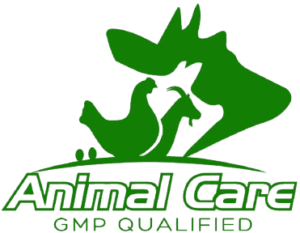1. Types of Avian Influenza
Avian influenza viruses are classified into two types based on their pathogenicity:
- Highly Pathogenic Avian Influenza (HPAI)
Viruses such as H5N1 and H7N9 spread rapidly and often result in high mortality rates among poultry. Mascot’s antibiotic products are highly effective in treating secondary bacterial infections caused by HPAI, reducing complications and lowering mortality rates. - Low Pathogenic Avian Influenza (LPAI)
While less severe, LPAI can still lead to long-term health problems and reduced productivity in poultry. Mascot offers antibiotics and nutritional supplements that help prevent secondary infections and support a faster recovery for affected birds.
2. Disease Patterns
- Climate Factors
- Southeast Asia: The humid climate and rainy seasons promote virus transmission. Good ventilation combined with the use of Mascot’s medicines to prevent secondary infections can help curb disease spread.
- Central Asia: Cold winters weaken poultry immune systems, making them more vulnerable to infection. Mascot’s nutritional supplements can boost immunity and reduce the risk of infections.
- Africa and the Middle East: Although these regions are hot, farms near wetlands are at risk of virus transmission from migratory birds. Regular use of Mascot’s medicines helps prevent secondary infections and keeps poultry healthy.
- Transmission by Wild Birds
Migratory birds are key vectors for spreading avian influenza, especially in regions with abundant water sources like lakes and wetlands. Poultry in these areas can benefit from Mascot’s antibiotics to prevent secondary infections from environmental exposure. - Dense Farming Environments
High-density poultry farming increases the likelihood of outbreaks, particularly in poorly managed farms. With Mascot’s medicines, farmers can effectively reduce large-scale infections and the risk of secondary bacterial complications.
3. Treatment Methods
Although there is no direct antiviral treatment for avian influenza, Mascot’s medicines play a crucial role in controlling the disease and preventing secondary infections:
- Antibiotic Treatment
Avian influenza often leads to secondary bacterial infections, such as respiratory or digestive system issues. Mascot’s broad-spectrum antibiotics help suppress bacterial growth, reduce complications, and improve survival rates in infected birds. - Nutritional Support
During an outbreak, poultry immune systems are severely impacted. Mascot’s vitamin and electrolyte supplements enhance immune responses and help poultry better resist the virus. - Timely Medication
As soon as symptoms are observed, the timely administration of Mascot’s medicines can prevent the infection from worsening and protect the rest of the flock.
4. Prevention Strategies
In high-risk areas for avian influenza, prevention is key. Mascot’s medicines support farmers by providing essential tools for preventing outbreaks:
- Preventing Secondary Infections
Avian influenza is often accompanied by bacterial infections, especially in densely packed farms. Mascot’s antibiotic products can be incorporated into daily management routines to reduce the risk of secondary infections. - Boosting Poultry Immunity
Mascot’s nutritional supplements and vitamins can be used proactively, especially before high-risk seasons, to strengthen poultry immune systems. A strong immune system significantly lowers the chance of infection and ensures consistent productivity. - Early Detection and Response
At the first sign of illness, using Mascot’s medicines can quickly contain the infection and prevent it from spreading across the entire farm. This is especially important in high-density areas like Southeast Asia and Central Asia.
5. Daily Management and Medication Use
In day-to-day poultry management, Mascot’s medicines offer an effective way for farmers to safeguard the health of their flocks. Here are some practical recommendations:
- Regular Use of Antibiotics
During high-risk seasons for avian influenza, farmers can regularly add Mascot’s antibiotics to feed or water to prevent secondary infections and maintain poultry health. - Supplementing with Vitamins
In extreme weather conditions—whether hot, humid, or cold—Mascot’s vitamin and nutritional supplements should be used regularly to enhance immune function, helping poultry cope with environmental stress. - Working with Veterinarians
Mascot strongly recommends that farmers work closely with local veterinarians to ensure proper dosage and application of medicines. Veterinarians can help monitor the flock’s health and adjust medication protocols as needed for the best results.
Conclusion
Avian influenza is a major challenge for the global poultry industry, particularly in high-risk regions like Southeast Asia, Central Asia, Africa, and the Middle East. Mascot specializes in providing effective, safe animal medicines that help farmers prevent secondary infections, boost poultry immunity, and improve disease management. By taking preventive measures and using Mascot’s medicines in a timely manner, farmers can significantly reduce the risks posed by avian influenza, ensuring the health of their flocks and the success of their operations.




